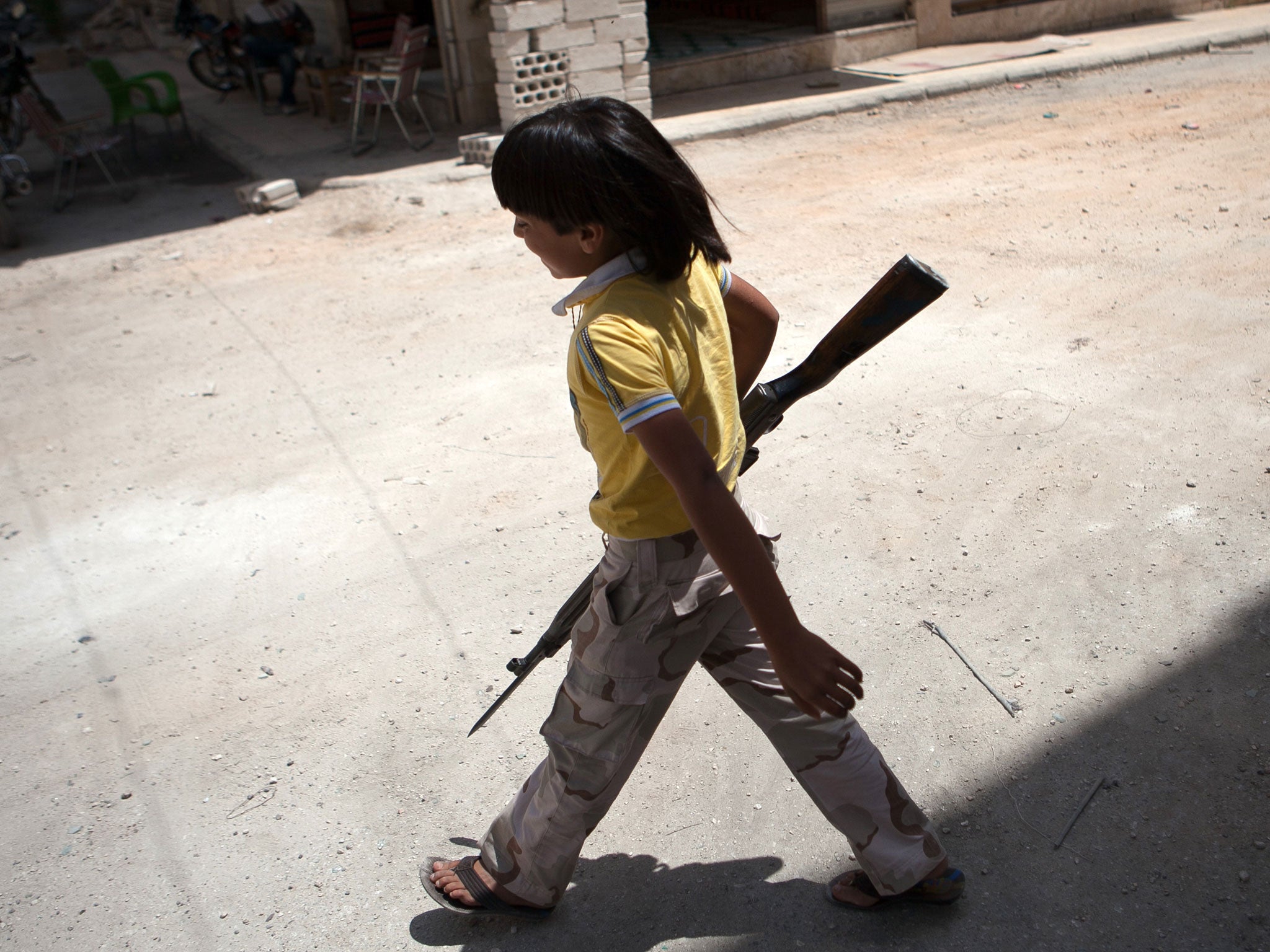As a former child soldier, I know that governments are overlooking the young girls I fought with in warzones
Though the world is aware that a child soldier isn’t only the boy with the AK47, there remains much to be done to protect the girls who fight, are used as military wives and sexual slaves


Your support helps us to tell the story
From reproductive rights to climate change to Big Tech, The Independent is on the ground when the story is developing. Whether it's investigating the financials of Elon Musk's pro-Trump PAC or producing our latest documentary, 'The A Word', which shines a light on the American women fighting for reproductive rights, we know how important it is to parse out the facts from the messaging.
At such a critical moment in US history, we need reporters on the ground. Your donation allows us to keep sending journalists to speak to both sides of the story.
The Independent is trusted by Americans across the entire political spectrum. And unlike many other quality news outlets, we choose not to lock Americans out of our reporting and analysis with paywalls. We believe quality journalism should be available to everyone, paid for by those who can afford it.
Your support makes all the difference.At the age of 15, I had already spent three years fighting in the civil war in my home country of Sierra Leone. Having lost both of my parents, my brothers and my home to the conflict at 12 years old, I thought the army might offer me some safety. Instead I was forced to fight, forced to kill and to witness a whole new world of violence and terror.
There was very little international protection for children in my position at that time – some of us didn’t even technically “exist” – we had no documentation, no birth records – nothing to prove who we were. By the time we left the military, it was symbolic of the way we felt.
It was only three years later, when I was finally released, that I realised I had any rights as a child, let alone that I was too young to be fighting a war I knew nothing about. I was placed in a rehabilitation home in Freetown before later moving to New York, and my life changed forever.
I am a father now, with two daughters of my own and I feel overwhelming relief that they will not have to experience what I did – and a fierce sense of injustice for the many girls globally who are experiencing it right now as I write. The plight of girls in conflict is one that is often overlooked – but I fought alongside girls when I was a boy soldier and know they are as likely to be recruited as anyone else.
The recruitment of children to fight in war continues to happen today. In 2018, children were fighting in 18 conflicts worldwide. In 2017, more than 3,000 cases of recruitment by armed forces in the Democratic Republic of Congo were reported; at least 19,000 under-18s are believed to be part of the South Sudan conflict, and the recruitment of children into the military in the Middle East has significantly spiked in recent years.
I have always felt a sense of urgency to shout out about this issue and put an end to it. I know I have a responsibility to bear witness to what war did to me and my community. I cannot be a bystander.
My interview for the Graca Machel report – The Impact of Armed conflict on Children contributed to a groundbreaking report that highlighted the disproportionate impact of war on children, and led to a mandate to protect them in armed conflict. If we act to end these atrocities, we can actually effect real change.
Of course, remarkable strides have indeed been made. This week, 150 children in South Sudan put down their guns and joined the 3,000 children already released from armed forces in the country. But for many, this is where the hardest part begins – overcoming the trauma of what they have seen, been forced to do, recovering their loss of “self” – I want to tell them that they will feel angry, that they will feel lost to the core. I remember how unsettling this moment was for me – but that they can overcome this because they are resilient and intelligent enough to have survived this long in war. I remember how powerful it felt to truly learn that I could refocus my resilience and live a full life, rather than merely surviving the horrors of war. It changed me.
As a Unicef ambassador for children affected by war and conflict, I have participated in and witnessed many negotiations for the release of children from armed groups. But so often, the girls suffer the most. Though the world is aware that a child soldier isn’t only the boy with the AK47 there remains much to be done to protect the girls who fight, are used as military wives, sexual slaves, and become the essential supportive foundation of these armed groups.
If I had one message for governments globally, it is to protect the many girls that are affected by these conflicts, as they are often overlooked. If we are to have world that is humane, that is proud of its morality, it must be one that starts with prioritising the protection of our girls, first and foremost.
Ishmael Beah is a Unicef ambassador and author. His novel The Lively Skeletons of Every Season, a novel will be published by Riverhead Books
Join our commenting forum
Join thought-provoking conversations, follow other Independent readers and see their replies
Comments